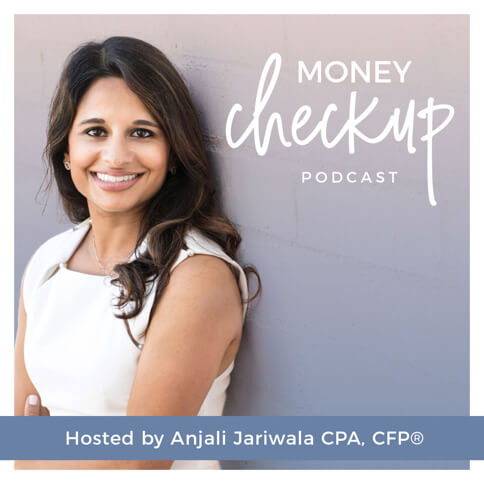Being a parent is the hardest thing I’ve ever done, followed closely by starting my own financial planning firm. It’s also the most rewarding.
Preparing for your child’s birth won’t necessarily make those first months feel easier — there isn’t much that can, I think most parents will agree.
But taking some necessary and important steps to protect your family’s health and security prior to your child’s birth will allow you to focus time and energy on your growing family — and, importantly, to take just a little more time for yourself.
Before The Baby Arrives: Insurance, Benefits, and a Budget
As you prepare to have a child or in the first few months of your pregnancy, make time to understand what your health insurance will cover during pregnancy and birth. Review the deductibles and-out of-pocket maximums for the plan you are on. If it looks like you may have to spend a lot of money for your pregnancy and delivery, consider switching your plan during open enrollment to one with lower deductibles and out-of-pocket maximums. If you have a Health Savings Account (HSA) or Flexible Spending Account (FSA) as part of your health insurance plan, increase your contributions to account for prenatal care and delivery costs.
Next, review your employee benefits, as well as those of your spouse or partner. Do you both have parental leave? If so, is it paid or unpaid? What does your employer or state offer in terms of Family and Medical Leave Act (FMLA) and short-term disability benefits? Make a plan for how you and your partner will use those benefits to ease the stress of your baby’s first weeks and months.
Additionally, some employers and health insurers offer other types of assistance, including adoption expense reimbursements or childcare expenses. Talk to your human resources department about these options, and notify them that someone will be added to your health insurance upon their arrival. Adjust the tax withholding on your W-4 if necessary.
The last health insurance-related item on this to-do list is to choose a pediatrician covered by your insurance. Your OB-GYN will likely be able to recommend someone affiliated with their hospital or health system.
Next, move on to your pre-baby budget. Make a list of everything you will need before the baby arrives (this checklist is helpful, based on my experience.) If you plan to have a baby shower, consider creating a registry. Some parents ask shower guests to bring diapers or baby books in lieu of cards. Create a budget for everything you still need to purchase.
When your child arrives, they will bring lots of recurring costs with them, from childcare to diapers to clothing (children grow faster than you can imagine!). These costs will affect your cash flow on an ongoing basis. Talk to the parents in your life about how much they spend on things like diapers and food and research childcare costs in your region. If you plan to ask a relative for help with childcare, talk to them now so you both know what to expect.
With this information, revise your cash flow plan accordingly. If you or your partner plan to take unpaid time off before or after your child’s arrival, make sure to factor that into your assessment. (If you feel you’ll need to cut back on your spending after your child arrives, know that for the first six months, you might be too tired to do much of anything anyways.) In my experience, and from talking to friends and clients, the cost of a child never really subsides, so make sure to have a buffer available in your cash flow if possible.
If you need to increase your emergency fund balance to ensure you can comfortably endure that temporary loss of income, do so now, while both partners are still working.
The First 30 Days: Paperwork
Paperwork starts before you and your new child leave the hospital. While there, you’ll complete the paperwork necessary to obtain your child’s birth certificate and Social Security card. Store these in a safe, secure place for the future.
After your child is born, make sure to add them to your health insurance as soon as you can. If you’ve already informed your human resources department or insurance provider about this pending life change, they should be able to quickly make the change.
Finally, review your life insurance and disability insurance coverage. If you feel you need to increase either type of coverage to protect your growing family, do so.
Next Steps: Estate Planning, Childcare, and College Savings
Each family approaches childcare differently. Some parents choose to work with a nanny or night nurse early in their child’s life; others adjust their schedules dramatically so they can care for their child themselves during those first months. Hopefully, you and your partner put a plan in place before your baby arrives. Once they’re here, work together to finalize those plans and hire someone if necessary. Be flexible and make adjustments if needed for your mental health.
If your employer offers a Dependent Care Flexible Spending Account that can be used for childcare costs, open one. These accounts can offer a small tax advantage without asking you to spend more than you planned to.
Next, adjust your estate planning documents to account for the arrival of your child. Spend time with your partner thinking about who you want to serve as guardian of your children should something happen to you. Work with an estate planning attorney to update your estate planning documents, including your living will, advance directive, and durable power of attorney for property and health. If you have a trust, update that as well.
If you plan to travel internationally early in your child’s life, apply for their passport. Children under 16 must appear in person with two parents or guardians to apply.
As you begin to adjust to life as a larger family, work with your financial advisor to open a 529 plan and begin saving for your child’s education. At the same time, make sure you take care of yourself as well — continue saving for retirement, continue investing, and continue setting some money aside for relaxation, travel, and self-care.




